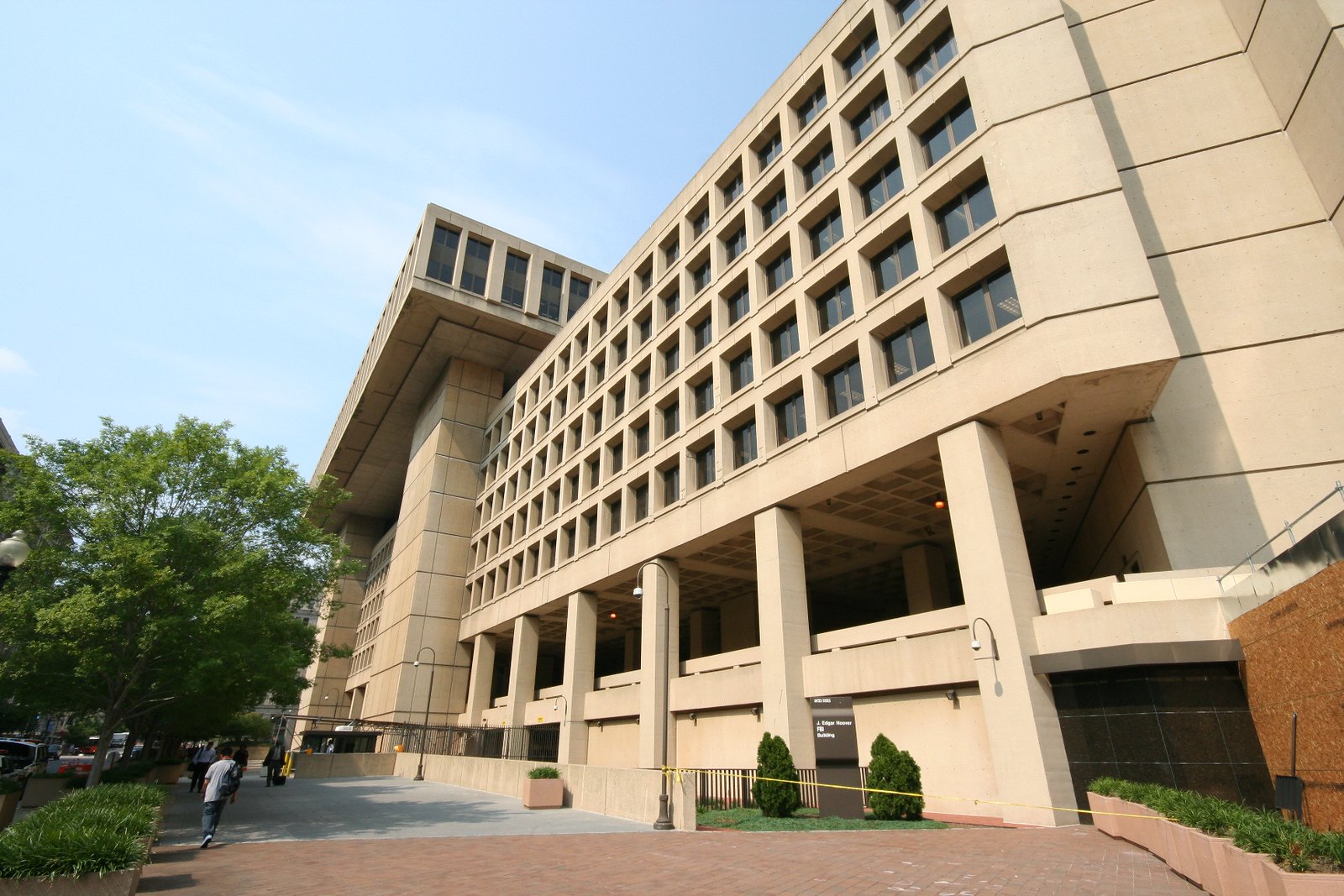Confidence in Government on National Security Matters: June 2018
A year ago, we began a polling project to measure public confidence in government institutions on national security matters on an ongoing basis. This post provides our data for the month of June.
Published by The Lawfare Institute
in Cooperation With

A year ago, we began a polling project to measure public confidence in government institutions on national security matters on an ongoing basis. This post provides our data for the month of June. It includes perceptions about government institutions and about the two major political parties’ handling of national security; about the public’s comfort with intelligence authorities; about the president’s handling of key national security issues; about Special Counsel Robert Mueller’s investigation; and ongoing military operations.
Confidence in Institutions to Protect U.S. National Security Remains Stable
In the last week of June, we used Google Surveys to ask respondents the following questions about confidence in institutions:
- How much confidence do you have in the Congress to protect U.S. national security?
- How much confidence do you have in the federal courts to protect U.S. national security?
- How much confidence do you have in the president to protect U.S. national security?
- How much confidence do you have in the intelligence community to protect U.S. national security?
- How much confidence do you have in the military to protect U.S. national security?
On a scale of 1 (“No confidence”) to 5 (“High confidence”), the average score for each institution from highest to lowest score was: 3.89 for the military, 3.09 for the intelligence community, 2.83 for federal courts, 2.83 for the president, and 2.49 for Congress. Support for the military and the president ticked up slightly from our polling in late May, while confidence fell slightly for Congress and the federal courts. Support was largely unchanged for the intelligence community.
Notably, confidence in President Trump on national security is higher than at any point since we began asking this question in July 2017. As the chart below indicates, the large gap between confidence in the president and the federal courts that we observed when this polling project began has completely closed. Confidence in the president has increased by .25 points over the course of the year of our polling. This may not sound like a lot, but it represents the only notable movement among any of the major institutions about which we measure public confidence. If this trend of growing confidence in Trump on national security continues, the public’s confidence in him could rival that of the intelligence community by this time next year.
In addition, while public confidence in the courts fell slightly between our May and June surveys, the June result is equal to the average monthly confidence level in the courts since we started collecting data. Further, the most common response was a 3, indicating a neutrality toward the courts on national security. This result coincided with the end of the Supreme Court’s term and finished on the day when Justice Anthony Kennedy announced his retirement.
The Republican Party’s National Security Advantage Over the Democratic Party Grows
We ask two separate questions to gauge the public’s party preferences on national security. One is on confidence in the parties to handle national security matters generically. On that question, in June, average confidence in the Republican Party’s ability to protect U.S. national security stood at 2.75, and average confidence in the Democratic Party’s ability stood at 2.59. Both parties are perceived more favorably than is Congress as a whole, which has an average confidence score of 2.49. The explanation for this appears to be that partisans of both parties are more likely to express support for their party than they are for a Congress that includes a healthy dose of the other party. Confidence in the Republican Party dropped slightly this month from its previous high-water mark in May, while confidence in the Democratic Party increased slightly from May to June.
The results of our second question, which asks which of the parties will do a better job on protecting the country from international terrorism and military threats, is much more worrisome for Democrats. On that question, the Republican advantage increases markedly when respondents are asked to choose between the parties or options of “neither” or “don’t know.” When asked in this manner, 34 percent of respondents chose the Republican Party, while only 20 percent chose the Democratic Party; 24 percent chose “don’t know,” and 22 percent chose “neither.”
Twenty percent is the lowest level of support for the Democratic Party that we’ve seen since we began asking this question last October, and the gap between the parties (14 points) is larger than at any time since we’ve asked this question. These findings could create messaging opportunities for Republicans and a significant challenge for the Democratic Party in its bid to regain the House.
The Public Remains Uncertain About Intelligence Authorities
In late June we once again asked respondents, “How comfortable are you with the powers of the U.S. intelligence community? Do intelligence agencies in your view have not enough authority or do they have too much authority?” As in all previous months that we have asked this question, respondents lean toward the intelligence community having too much authority. However, also as in all previous months, far and away the most common response to this question is a neutral 3 on our scale; 45 percent of respondents selected this option. And if we take the middle three answers (2, 3 and 4) as reflecting apathy about intelligence authorities, uncertainty about them or general comfort with them, the share of respondents clustered in this area remains quite high: Fully 73 percent of respondents are not saying any strong version of the claim that intelligence authorities are out of whack.
Confidence Remains Low in the President’s Handling of Key National Security Issues
In November, we began asking respondents how confident they were in the president’s ability to handle key national security issues, specifically with regard to Iran, North Korea and terrorism. In June, we once again found that confidence in the president on these topics remains low, at 2.60, 2.64 and 2.76, respectively, on our scale. While confidence in the president’s handling of each of these issues is below the level of average confidence in the president’s handling of national security generally (2.83), confidence in the president on each of these issues has increased since March. For the second straight month, the public’s confidence in the president’s ability to handle Iran has fallen, following his announcement that the United States would be leaving the Iran deal. On the other hand, the public’s confidence in the president’s ability to handle North Korea increased since May, though only marginally (from 2.62 to 2.64 on our scale). That it was such a small bump is perhaps surprising given that Trump’s historic meeting with Kim Jong Un occurred between these two polls.
Confidence in Special Counsel Mueller Falls and Is Now Equal to Confidence in Trump
As we have since October, we once again asked the public about its level of confidence in Robert Mueller’s “fairness and objectivity” at the end of June. Average confidence in Mueller was a 2.83 on our scale, which is identical to the public’s level of confidence in the president on national security. This is the first time since we began asking this question that the public has not held higher confidence in Mueller than in the president. Statistically speaking, this is attributable to both confidence in the president increasing in recent months and to confidence in Mueller falling slightly. Practically speaking, this could mean that Trump and the Republican Party’s relentless attacks on the integrity of Mueller’s investigation, and the Department of Justice more generally, have contributed to a slow, but steady, decline in trust of Mueller.
On the other hand, confidence in the special counsel is no lower than it was in November of last year. Confidence in the Mueller investigation tends to spike when he indicts people or reaches plea agreements, and the Mueller investigation has been notably quiet of late. It will be interesting to see whether these numbers continue eroding after the next spurt of activity in the investigation.
Confidence in Ongoing Military Operations Falls and Remains Well Below Overall Confidence in the Military
While the military enjoys the highest level of public confidence of any government institution we asked about (a 3.89 on our scale), confidence in ongoing military operations in Afghanistan and Iraq-Syria is markedly lower, with average confidence scores of 2.83 and 2.73, respectively. As the trend line indicates, public confidence in these military operations has wavered little since we began asking these questions in November, a result that is perhaps explained by scant media attention toward these operations in recent months.
Methodology
From June 25–27, we once again used Google Surveys, which is supporting this project with a large in-kind donation of access to its survey platform, to ask a variety of questions related to national security. Respondents are internet users age 18 and older who answer “surveywall” questions on websites that use Google Opinion Rewards for Publishers to access content. Surveys appear on a network of more than 1,500 sites, including USA Today and the Financial Times. For more information on Google Surveys’ methodology, including questions regarding sampling bias and inferred demographics, please see Google’s white paper on the topic. Benjamin Wittes and Emma Kohse also discussed criticisms and advantages of the Google Surveys methodology at some length in this paper.







.jpg?sfvrsn=b3d4eb92_7)
